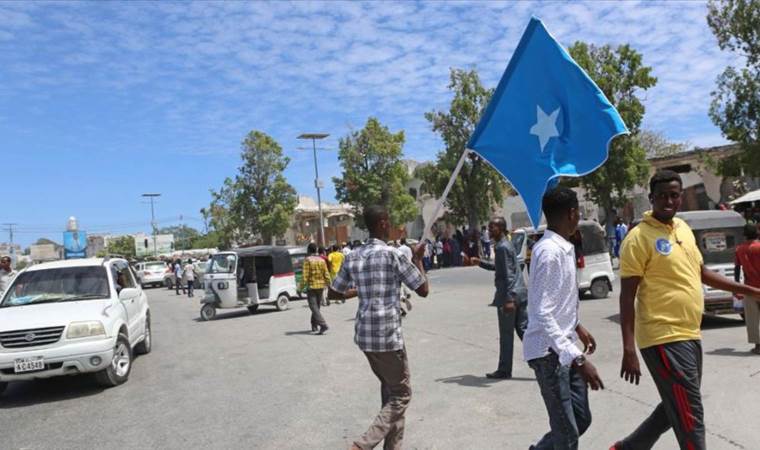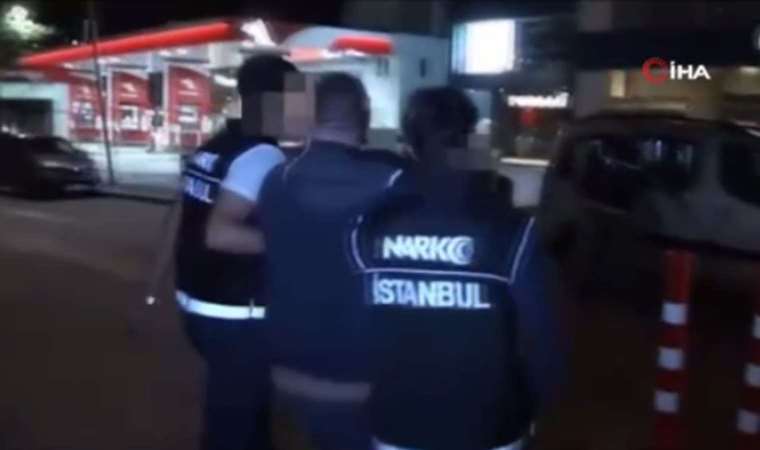Opinion: How Gaza Cause Was Sold Out?
Barış Terkoğlu

In the grand scheme of things, cursing can’t bring about death. Otherwise, humanity would have faded away aeons ago.
The Gaza Strip had found itself enclaved in another blockade. A mission was launched under the banner “Our Destination is Palestine, Our Cargo is Humanitarian Aid.” Departing from Antalya on May 28, 2010, the Mavi Marmara joined five other vessels in the Mediterranean.
Leading the Gaza aid mission was IHH (Humanitarian Relief Foundation). Behind the scenes, it’s rumoured that the government proposed delivering aid under the Red Crescent flag, but the offer was declined. Reports suggested AKP deputies had second thoughts about boarding the ship, whether due to foresight or other considerations.
On the night of May 31, in international waters, the Israeli military confronted the Mavi Marmara. Tragically, 10 Turkish citizens lost their lives in the crossfire.
Presenting the Facts Accurately
Public sentiment was in an uproar that day. Erdogan was abroad, and Ankara was on high alert. Vice Admiral Nusret Güner, the Chief of Staff of the Naval Forces Command at the time, recounted the events at a meeting held at the Prime Ministry, as detailed in Toygun Atilla’s book “Clumsy Admiral”:
“At this momentous meeting, the escort and protection of the Mavi Marmara was discussed. Government officials inquired about the Navy’s preparedness. Vice Admiral Nusret Güner, representing the Navy at the meeting, affirmed their readiness for the escort and protection mission. However, he hastened to add, ‘We must be aware that a confrontation with Israel is inevitable in this scenario. If such a situation arises, the Naval Forces must be granted the authority to apply the rules of engagement.’ In response, government members suggested, ‘Rather than dispatching warships to escort and protect the Mavi Marmara, let’s issue a press statement stating that we have dispatched our warships.'”
That day, Turkey severed diplomatic ties with Israel. Now, there were two countries pointedly ignoring each other.
Not Remuneration, But Donation!
Could this assault on international waters be tried in Turkish courts? That was a subject of much debate. Yet, with the government’s approval, Istanbul Public Prosecutor Mehmet Akif Ekinci, who has since been promoted to the Council of Judges and Prosecutors (HSK), drafted an indictment. It sought nine times aggravated life sentences for the then-Israeli Chief of General Staff, Commander of the Naval Forces, Chief of Intelligence, and Commander of the Air Force. A case was filed at the Istanbul 7th High Criminal Court.
As the hearings proceeded without any of the defendants appearing, a historic event unfolded. On March 22, 2013, US President Barack Obama intervened. Erdogan and Israeli Prime Minister Netanyahu engaged in a phone call. Netanyahu issued an apology and proposed compensating the victims’ families. Erdogan accepted. The two leaders also agreed to halt the legal proceedings.
On June 28, 2016, Foreign Ministry Undersecretary Feridun Sinirlioğlu and his Israeli counterpart Dore Gold signed the Mavi Marmara Agreement. In the agreement, the attack was referred to as the “convoy incident.”
In the English version of the agreement, the $20 million payout was termed “ex gratia,” signifying a payment without obligation. Israel deliberately avoided the term “compensation,” which would have implied an obligation for future incidents.
Turkey also officially acknowledged complete legal responsibility for the incident. Notably, the agreement omitted any mention of easing or lifting the Gaza blockade. Consequently, the accord elicited accusations of “blood money against the Gaza cause.” As IHH President Bülent Yıldırım lamented, “Unfortunately, it signifies Turkey’s acceptance of the Gaza blockade.” Israel neatly tied up its affairs by depositing $20 million into the Ministry of Finance’s account.
“Did You Ask Me!”
You’re familiar with how we spin the tale of an independent judiciary. However, in this case, the judiciary seemed to align with political manoeuvres. On December 9, 2016, after a tumultuous hearing, the Mavi Marmara case was officially dropped. Subsequently, arrest warrants and red notices against the Israeli soldiers were retracted.
The government’s determination was quite evident.
While the case was closed in favour of Israel, the families opted to sue the Ministry of Finance. In response, the Ministry of Finance stated, “It should have been anticipated that IHH might face such an attack given the well-documented issues between the state of Israel and Gaza.” The government’s stance essentially suggested, “You set this in motion yourselves.”
Once upon a time, Erdogan would rally for votes, invoking the Mavi Marmara, often beginning with “O Kılıçdaroğlu.” He even directed sharp remarks towards the the leader of the Gulenist terrorist network, Fethullah Gulen, in connection with the Mavi Marmara: “What was he saying, ‘They should have obtained permission from the authority’? Who constitutes this authority – their comrades down south (referring to Israel) or us? If the authority resides within Turkey, we’ve already granted permission. But for them, it’s Israel.”
Yet, as times changed and a pact with Israel was struck, Erdogan’s rhetoric towards IHH activists transformed: “Did you seek approval from the prime minister of the day for transporting humanitarian aid from Turkey?”
When circumstances shifted, IHH workers were also branded as “fanatics” in government-backed media and accused of affiliations with FETÖ. The head of IHH was pressured to issue an apology when Erdogan was pressed on his words, “Anyone who aligns with Israel ends up exposed.”
Erdogan Bey Ship
The Mavi Marmara was eternally linked with debates over “paid or unpaid” compensations. On June 23, 2017, Finance Minister Naci Ağbal announced that “compensations had been disbursed to the families of those who perished in the Mavi Marmara attack,” effectively concluding the matter. There was no reckoning for the case, the Gaza blockade endured, yet, for some reason, the entire narrative revolved around money.
Curiously, the ship itself was forgotten. Once owned by IHH, it made a cameo in the movie “Valley of the Wolves.” Seven and a half years post the attack, it came to light that the ship had been sold to an arms dealer. The vessel was whimsically christened “Mr. Erdoğan.” Were it not for the announcement of Lieutenant Colonel Eli Ginsburg‘s demise in the recent Hamas attack, the Mavi Marmara would have long faded from public consciousness.
Main opposition CHP leader Kemal Kılıçdaroğlu proposed reopening the Mavi Marmara case. Last year, he paid a visit to the family of Çetin Topçuoğlu, who perished on board. He affirmed, “Once we assume power, we’ll lay bare the entire process – how the files were opened, how inquiries were conducted, and how Turkey’s reputation was safeguarded.” However, with the electoral outcome not in his favour, that prospect dwindled.
And thus, the tale unfolds…
The sale of the Mavi Marmara case to Israel stands as the most tangible manifestation of the ambivalence of Middle Eastern politicians, who embrace Palestine one day and align with Israel the next. The rallying cries of those who vociferated “Down with Israel” in public squares barely registered. Meanwhile, those who courted votes with pledges of “Palestine” persisted in clandestine negotiations with Israel. Given current events, the forthcoming war promises to follow a similar trajectory. Condemnations will be met with further condemnations. In this paradigm, where missiles hold more weight than curses and innocents bear the brunt, the cycle continues.
The day we recognize that humanity shapes both the malign and the virtuous, we’ll cease searching for excuses for our inaction.






